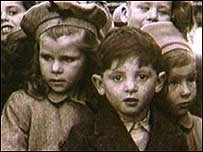Foster care facts for kids

Foster care is when a child lives with and is looked after by a family that is not their own. Children might go into foster care because their own parents are not able to care for them safely. When a foster child comes to a new home, it's important to make them feel welcome and safe.
There are many reasons why a child might need foster care. For example, their parents might be very sick or facing big challenges that make it hard to care for their children. Sometimes, parents might be in prison, or the children might not be safe in their own home. Children are placed in foster care so they can be safe and live a more normal life with a different family.
When a child is fostered, there is always a legal agreement. The people who look after the child are called "foster parents." The court gives foster parents the power to make decisions for the child. This is because the child's birth parents are not able to do so at that time. This legal term is sometimes called "in loco parentis," which means "in the place of the parent."
The laws about foster care are different in various countries around the world.
In many Western countries, foster care can sometimes be a long-term plan. This might mean a child stays with a foster family until they become an adult. However, in many cases, a child might be able to return to their own family later if their family situation improves.
Foster parents usually receive money from the government to help cover the costs of looking after the children.
Adoption is different from foster care. When a child is adopted, they become a permanent part of a new family through a legal process. The adoptive parents become their legal parents forever.
Fosterage is also not the same as foster care. Fosterage is a social practice in some societies where children are raised by other families. This is usually a social arrangement, not a legal one.
Images for kids
 | James Van Der Zee |
 | Alma Thomas |
 | Ellis Wilson |
 | Margaret Taylor-Burroughs |



